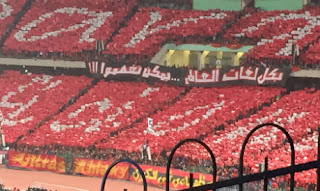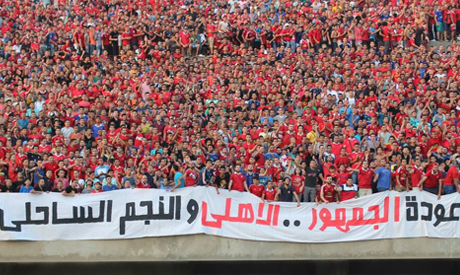
Fußball ist Fußball und Politik ist Politik? Von wegen: In zahlreichen Ländern der Welt beteiligen sich Fußballfans und Ultras aktiv an Aufständen und Revolten. Der Blogger Ralf Heck hat sich intensiv mit dieser Thematik befasst und war unter anderem während der Gezi-Park-Proteste in Istanbul. Wir sprachen mit ihm.
Ralf, du hast dich intensiv mit der Beteiligung von Ultras an weltweiten Aufständen beschäftigt. Welche Beispiele gibt es für solch ein aufständisches Mitwirken von Ultra-Gruppierungen?
Da gibt es so einige: Angefangen vom Jahr 2008 bei der Dezemberrevolte in Griechenland bis hin zu den Unruhen in Bosnien-Herzegowina im Februar letzten Jahres konnte man eine große Beteiligung von Ultras beobachten. Darüber hinaus haben bei den Occupy-Protesten in Israel 2011/12, die sich vor allem gegen steigende Mieten richteten, die Ultras von Hapoel Tel Aviv mitgemischt. Recht berühmt für die Beteiligung von Fussballfans dürfte sicherlich auch der Aufstand in Tunesien sein, der ja als Anfang des arabischen Frühlings gilt und letztendlich eine ganze Welle weiterer Erhebungen in anderen Ländern ausgelöst hat. Dort haben Oppositionsgruppen im Vorfeld der Revolte Kontakt zu den Ultras aufgenommen, weil diese im Kampf gegen die Polizei erfahren waren. Die prominentesten Beispiele sind aber sicherlich die Aufstände in Ägypten, der Türkei und jene in der Ukraine, letzteres jedoch eher im negativen Sinn.
Inwiefern?
In der Ukraine haben die Ultras auch eine besondere Rolle gespielt, insbesondere bei den militanten Auseinandersetzungen mit der verhassten Polizei. Leider war die dortige Revolte, die sich gegen ein zutiefst autoritäres Regime richtete, eher reaktionär und nationalistisch geprägt. Zwar haben über 30 Gruppen aus den drei ersten Ligen ein Friedensabkommen geschlossen, um sich gemeinsam am Widerstand gegen das Regime zu beteiligen – unter anderem die Ultras von Dynamo Kiew, die Banderstadt Ultras aus Lwiw aber auch jene aus dem Osten des Landes. Allerdings haben sich viele Ultras dem Rechten Sektor und anderen nationalistischen Gruppen angeschlossen. Auch bei dem Angriff auf das Gewerkschaftshaus in Odessa, bei dem viele Menschen ums Leben kamen, waren sie zahlreich vertreten. Momentan organisieren Teile der Ultras die nationale Mobilmachung in den zahlreichen Rekrutierungszentren für den Bürgerkrieg im Osten.




